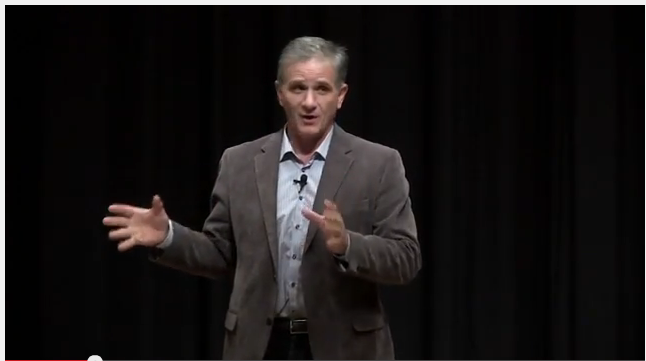Sustainable agriculture is a buzz word that seems to fly frequently when talking about food production these days. It is truly important because we have to think about feeding the current population as well as the future.
What does sustainability mean to an agriculturist?
Sustainability means that a farmer's son can come home to farm the same acres of ground he inherited from his father. Sustainability means that a rancher can turn his cows out on the same pasture year after year. What could be more important to an agriculturist than the sustainability of his or her family business?
To further explain sustainable farming, I think it's best to use a real life example from my back yard.
Royal Farms Dairy is near Garden City, KS is managed by Kyle Averhoff and the Irsik family. They milk around 6,000 cows each producing around 6.7 pounds of milk per day. That is a total contribution of about 14,673,000 gallons of milk to consumers in a calendar year! When I visited Kyle's dairy farm, he talked about the environment and the measures that Royal Farms take to ensure that they are doing things correctly. By taking these measures, he can provide a sustainable approach to producing milk and I know that Royal Farms Dairy will be around for years to come.

Royal farms uses a milking parlor like this and water is flushed down it to keep it clean. It's important to keep the parlor clean to help maintain food safety standards. The water that cools the milk is also re-used to clean the feed alleys outdoors and is ultimately pumped in to a center pivot to water the nearby corn fields. Royal farms irrigates 1,600 acres with the water from their dairy. The manure that is hauled away from the farm is also incorporated into the soil to increase water holding capacity and provide natural fertilizer for the crops.
Air quality is always something that gets brought up when a large number of dairy cows are kept in one area. One thing that I thought spoke to Kyle's dedication to properly maintaining his dairy farm is that his house is literally across the road. He raises a family using the same ground, water and air that his dairy does. Air quality was superb when I visited Royal Farms Dairy.
One of Kyle's best examples of sustainability and something that really hit home for me was when he brought up a simple relationship. I don't remember the numbers exactly, but Kyle related the amount of water that Royal Farms Dairy uses in a year and compared it to the 62 employees his farm provides jobs for. In a rural community, if you look at the number of children that will be enrolled in the local schools because of the increased employment at a nearby farm, you can't get a better deal! Enrollment numbers are important to rural schools and farms like Kyle's boost the economy of a small town and help add to those numbers. The amount of water used really becomes minuscule when you think of it from this angle.
Sustainability at it's finest at Royal Farms Dairy.
For more information about the dairy industry, I've found this site really useful.
Kyle's farm was honored at the World Dairy Expo and there is a lot more information on this site.
All my best,
Tera


.JPG)







